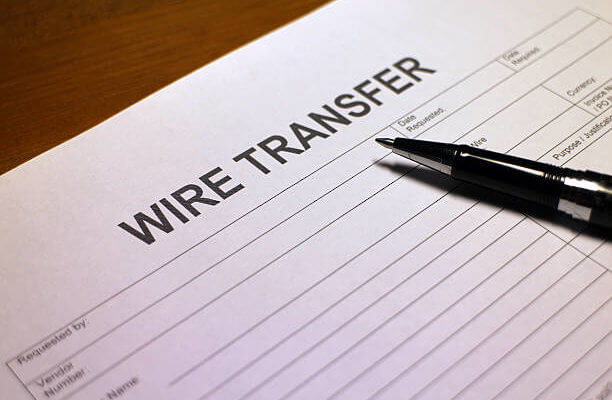
When managing the bill pay needs of high-net-worth individuals and families, it’s imperative to have bank-level security for all payments being sent – whether those are wire transfers, ACH, or old-school checks.
Plumb has the strictest of protocols to protect our clients and their money. And with our decades of experience working with HNWI, families, and family offices we have our payment security procedures down to a science.
First-time wire safety procedures
Any first-time wire transfer requests require verbal confirmation on a recorded line with the client or designee to confirm the transaction.
- To authenticate the individual, they are asked a series of security questions.
- Additionally, we reach out to the beneficiary on a recorded line to verbally confirm the written wire instructions that were provided.
- A change to wire instructions also prompts a verbal confirmation from both the client and the vendor to reconfirm the instructions.
New vendor safety procedures
Any new vendor, an invoice with a 200% variance, or a vendor that hasn’t been paid in over a year requires a verbal with the client/designee before processing.
Employee cybersecurity training
Our team is also wholly trained in cybersecurity and participates in monthly security updates. They know what to look out for, how to spot a “scam” and what to do in the event that they suspect malintent: pick up the phone and confirm with the beneficiary, their designee, and the vendor. This step is as imperative as it is simple, and it can prevent fraud, months of headaches, loss of funds, and loss of the trust we have built with our clients. Preventing these events is of paramount importance to the Plumb team.
Is one payment option better than the other?
Although each payment option varies slightly in terms of how quickly a payment will be delivered or their associated costs (see below for more details), Plumb remains impartial when it comes to these different options.
Due to our stringent security measures and our internal system of checks and balances to ensure accuracy, payments made on behalf of clients via wire transfer, ACH, or check are all equally safe. While approximately 80% of our payments are made via wire transfer – especially those payments that are more urgent – if a client prefers ACH over wires due to the fees incurred with wire transfers, we will always honor the client’s wish.
What’s next?
As a result of the pandemic and the improvements in bill pay technology, we have noticed a shift towards more electronic payments over the past couple of years. We don’t expect this trend to slow down any time soon. What we know for sure is that wherever the future of bill pay takes us, Plumb will be prepared with our best-in-class bill pay staff, high-touch service, and the latest security measures.
Glossary of Payment Terms
Wire Transfers
- Speed of Payment: Same day.
- Associated Costs: Fees can be incurred for both the sender and recipient depending on the bank. (Typically, $15-$30).
- Safety: Funds are accessible immediately, so recipient is technically at an advantage.
- Recourse in case of fraud: Once completed, there is no way of reversing. Internal process with the bank to handle the funds being returned (if applicable).
- $ Limit: No limit for Plumb. (Daily limits with specified bank that can be increased as needed.)
- Other Info: Currency rate/exchange fees can be incurred.
ACH (Automated Clearinghouse Network)
- Speed of Payment: 1-3 business days.
- Associated Costs: No cost.
- Safety: More secure for the sender as funds can be reversed after funds have been sent (in most cases).
- Recourse in case of fraud: Payments can be reversed by the bank (sender advantage).
- $ Limit: $1MM limit.
- Other Info: Limited to the US.
Check
- Speed of Payment: Can take up to a week (or longer) to be delivered to a vendor.
- Associated Costs: No cost associated with sending aside from postage fees.
- Safety: Safe; Plumb’s policy is to send any high dollar checks, DMV payments, or tax payments via certified mail with tracking.
- Recourse in case of fraud: Dispute and open a case with the bank.
- $ Limit: No limit.
- Other Info: International checks are typically sent using alternative methods like UPS or FedEx.
